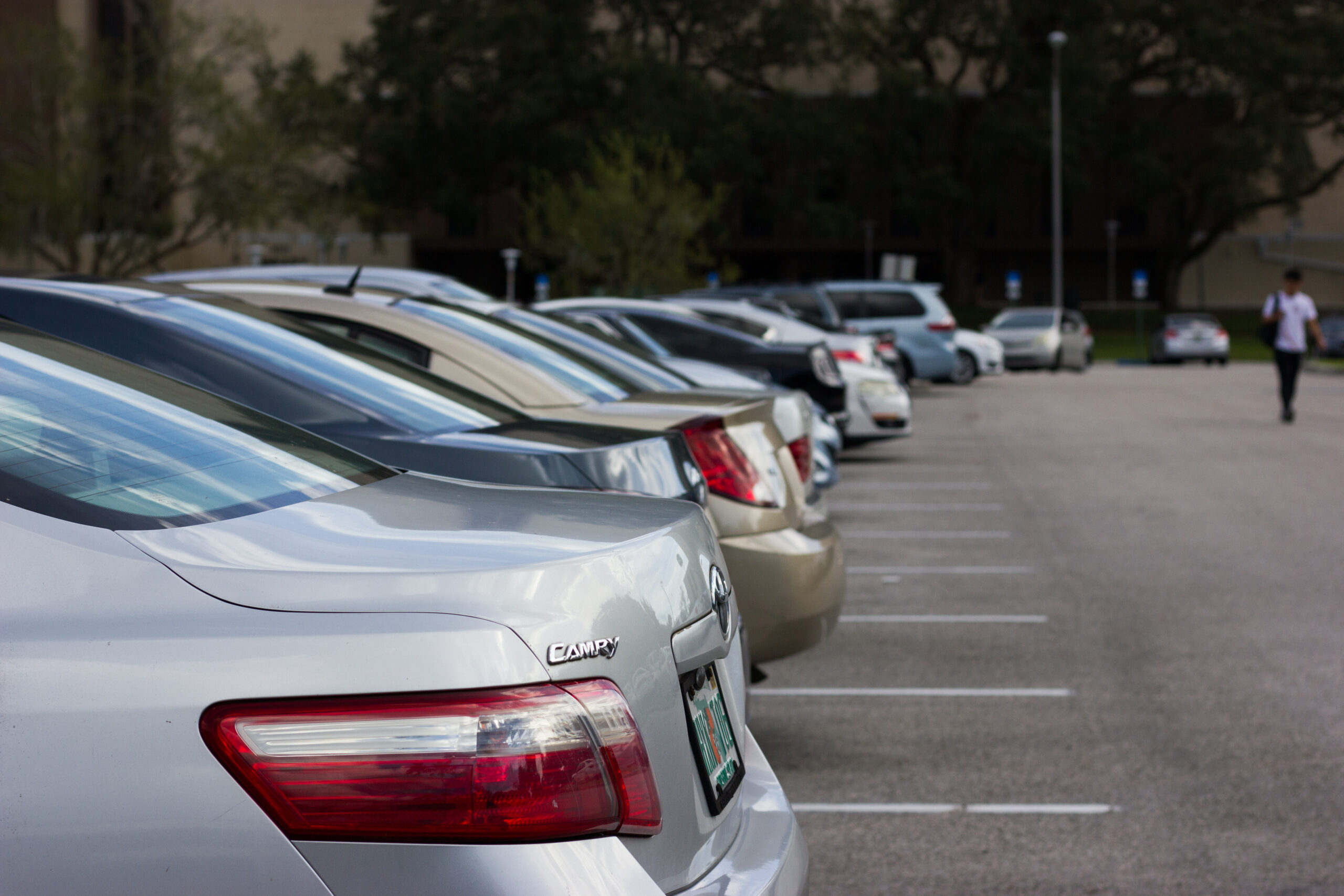OPINION: USF, don’t value pocket change more than your employees.

With faculty working hard to make USF a great experience for students, employers should show their appreciation. Yet, 14,980 members of faculty and staff at USF are slapped with a parking bill each year.
“Apparently we have plenty of money to build fancy vanity buildings and a stadium,” said Richard Manning, faculty senate secretary and associate professor in philosophy, in an interview with The Oracle on Jan. 19. “And yet we need to profit off of people just trying to get here to do their underpaid work?”
Parking permits should be provided free of cost to USF employees. To cover costs, the Parking and Transportation Services Department (PATS) should rely on an extra $80 fee for students to pay, whether they have a car on campus or not.
The student population greatly outnumbers that of staff and faculty. If all 50,000 students were required to pay for the operation of PATS every school year, staff and faculty wouldn’t have to pay for parking.
PATS requires employees to pay for parking permits and relies on funds from citations, transportation access fees and parking permits to operate, spokesman Aaron Nichols said in a Jan. 12 interview with The Oracle.
This policy is unfavorable to employees who feel they are already underpaid.
“I dislike it, largely because staff are already underpaid and otherwise undervalued,” said Manning. “Staff make less than anyone. Faculty, too, are underpaid.”
Faculty at USF have an average salary of $47,372 each year, an unfair rate compared to the salaries earned at other state colleges. The average annual salary of faculty at the University of Florida is $89,046 and $55,460 at Florida State University.
Despite its location in the hub of Tampa, the public transportation available in the city has its flaws.
“I have not seriously considered taking public transit here, since the public transportation system in the area is a joke, and because USF is so spread out,” Manning said.
Public transit is not a huge priority in the city. The Tampa Bay Times reported that the city routinely underspends on transit.
Tampa has an annual operating budget of $141 million, which is the same as the budget of Buffalo, N.Y., a city with a smaller population than Tampa by 1.5 million people.
Faculty and staff are not equipped with the best means of public transportation, so they opt for an overpriced parking permit. If public transit is not in the question, how can we expect employees to pay just to come to work?
Even though USF’s Transportation Department needs funding, the resources should not have to come from the pockets of employees. Instead, students should pay for it.
Students may believe that an increased bill is the last thing needed, however, USF students pay some of the lowest tuition in the state. The average price of Florida universities for in-state students is $14,531 compared to $6,410 at USF.
With USF students paying half of the state’s average tuition, an increase in parking permit prices should not be an inconvenience.
“Tuition and other student costs here are among the lowest in the country. USF underpays staff and faculty, while it undercharges students,” said Manning.
Assuming all 14,980 employees at USF have a parking permit that costs an average of $266, eliminating staff parking permits would lead to a void of $3,984,680.
The solution to this unfavorable employee charge is to add a $80 PATS fee to the cost of student fees. Students who do not have a car on campus would also be charged this PATS fee which could cover the $3.9 million.
This pay-for-parking policy is inconvenient to many, but it would make more sense to place this financial responsibility on students. Tuition payers have at least agreed to the pricey terms and conditions that is the college experience.








